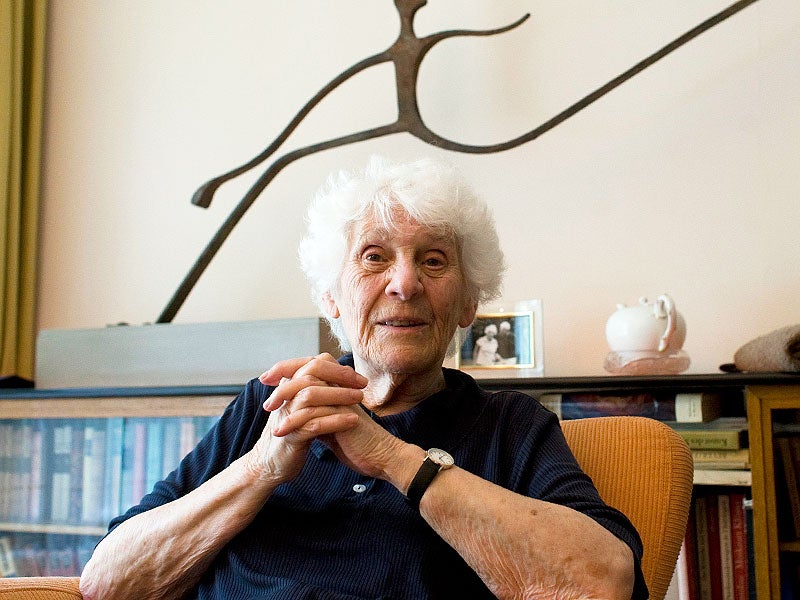Your support helps us to tell the story
From reproductive rights to climate change to Big Tech, The Independent is on the ground when the story is developing. Whether it's investigating the financials of Elon Musk's pro-Trump PAC or producing our latest documentary, 'The A Word', which shines a light on the American women fighting for reproductive rights, we know how important it is to parse out the facts from the messaging.
At such a critical moment in US history, we need reporters on the ground. Your donation allows us to keep sending journalists to speak to both sides of the story.
The Independent is trusted by Americans across the entire political spectrum. And unlike many other quality news outlets, we choose not to lock Americans out of our reporting and analysis with paywalls. We believe quality journalism should be available to everyone, paid for by those who can afford it.
Your support makes all the difference.A 102-year-old German woman, who was denied her doctorate by the Nazis almost 80 years ago, is set to become the world’s oldest person to receive a PhD.
Ingeborg Rapoport (formerly Syllm) finished her doctoral dissertation on diphtheria in 1938 – aged 25 and five years after Adolf Hitler was named chancellor – but was refused entry to her final exam because her mother was Jewish.
Ms Rapoport recalled how her then professor praised her research and work on the illness – which was the leading cause of death in children in the U.S. and throughout Europe at the time.
Although he was impressed, the one-time Nazi party member told Ms Rapoport it was not enough and that she was not permitted to sit her final oral exam.
The academic authorities in Berlin at the time cited ‘racial reasons’ for the ban which meant that, although she had been raised as a Protestant, her mother was Jewish which made Ms Rapaport ‘a first-degree crossbreed’ according to Nazi jargon.
“My medical existence was turned to rubble,” she said, remembering how officials marked her exam forms with a bright yellow stripe which stamped her work as ‘ineligible’ for academic advancement.
“It was a shame for science and a shame for Germany,” she added.
Shortly after the ban, Ms Rapaport emigrated alone and with hardly any money to the U.S. where she did hospital internships in Brooklyn, Baltimore and Ohio.
She applied to 48 medical schools and was finally accepted by the Women’s Medical College of Pennsylvania in Philadelphia.
The University of Hamburg decided to set the record right when, last month, three professors travelled to Ms Rapaport’s home in East Berlin to carry out the oral exam she was denied almost eight decades ago which she passed.
Ms Rapaport will finally receive her PhD today in a special ceremony at the university.
The soon-to-be doctor explained how her achievement was ‘about the principle’, adding: “I didn't want to defend my thesis for my own sake. After all, at the age of 102, all of this wasn't exactly easy for me. I did it for the victims.”

Join our commenting forum
Join thought-provoking conversations, follow other Independent readers and see their replies
Comments